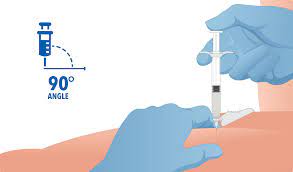Eligard: Uses, Side Effects, and Benefits
Eligard is a medication that plays a significant role in various medical treatments. Understanding what Eligard is and its essential functions is crucial for individuals seeking effective healthcare solutions.
Why Understanding Eligard Matters

Tigard
Eligard is a medication that offers hope and relief to many individuals facing specific medical conditions. By grasping its fundamental concepts, you empower yourself to make informed decisions about your health and treatment options.
Medical Uses and Indications
Approved Medical Conditions Treated by Eligard
Eligard is primarily prescribed for the treatment of prostate cancer. It belongs to a class of medications known as luteinizing hormone-releasing hormone (LHRH) agonists, which work by reducing the body’s production of testosterone, a hormone that fuels prostate cancer growth.
How Eligard Works in the Body
Eligard operates by suppressing the production of hormones in the body, specifically luteinizing hormone (LH) and follicle-stimulating hormone (FSH). This hormonal suppression is crucial for managing conditions like prostate cancer and achieving therapeutic goals.
Eligard in Cancer Treatment
Eligard’s role in cancer treatment extends beyond prostate cancer. Ongoing research explores its potential applications in other cancer types, demonstrating its versatility in the medical field.
Administration and Dosage
How Eligard is Administered (Injections)
Eligard is typically administered via subcutaneous injections, which are administered just beneath the skin. The injection is usually given by a healthcare provider in a clinical setting. Understanding the administration process can help individuals prepare for their treatment.
Dosage Guidelines and Frequency
The dosage and frequency of Eligard injections depend on the specific medical condition being treated. Healthcare providers tailor the treatment plan to each patient’s needs. It’s essential to adhere to the prescribed dosage and schedule for optimal results.
Importance of Adherence to Dosage
Adherence to the recommended dosage and treatment schedule is crucial for the effectiveness of Eligard. Deviating from the prescribed regimen can impact treatment outcomes. Patients should communicate any concerns or difficulties with their healthcare providers.
Potential Side Effects
Common Side Effects of Eligard
Eligard, like many medications, may be associated with certain side effects. Common side effects include hot flashes, fatigue, and injection site reactions. It’s essential to be aware of these potential side effects and report any concerns to your healthcare provider.
Rare but Serious Side Effects
While rare, Eligard may lead to more severe side effects such as allergic reactions, difficulty breathing, chest pain, or changes in mental/mood status. It’s crucial to seek immediate medical attention if any of these rare but serious side effects occur.
Monitoring and Managing Side Effects
Patients prescribed Eligard should maintain open communication with their healthcare providers. Regular monitoring can help manage side effects, and healthcare professionals can guide symptom relief and coping strategies.
Eligard vs. Other Medications
Comparing Eligard to Similar Medications
Eligard is part of a class of medications known as LHRH agonists, used in the treatment of prostate cancer. In this section, we’ll compare Eligard to other medications within the same class, discussing similarities and differences in their usage, efficacy, and potential side effects.
Benefits and Drawbacks of Eligard
Understanding the advantages and limitations of Eligard is essential for informed decision-making in healthcare. We’ll delve into the benefits of Eligard, such as its effectiveness in prostate cancer management, while also acknowledging any potential drawbacks or considerations.
Choosing the Right Treatment Option
Choosing between different medications can be a complex decision. This section provides insights into factors that may influence the choice of Eligard or alternative treatments, helping individuals and their healthcare providers make informed choices.
FAQs regarding Eligard:
FAQ 1: What is Eligard used for?
Answer: Eligard is primarily used in the treatment of advanced prostate cancer. It helps lower the levels of testosterone, which can slow down the growth of cancer cells.
FAQ 2: How is Eligard administered?
Answer: Eligard is administered as a subcutaneous injection under the skin, typically once a month or as prescribed by your healthcare provider.
FAQ 3: What are the common side effects of Eligard?
Answer: Common side effects may include hot flashes, fatigue, injection site reactions, and changes in sexual interest. It’s essential to discuss any side effects with your doctor.
FAQ 4: Are there any serious side effects of Eligard?
Answer: While rare, Eligard may lead to more serious side effects like allergic reactions or mood changes. Seek immediate medical attention if you experience any severe symptoms.
FAQ 5: Can Eligard be used for conditions other than prostate cancer?
Answer: Eligard is primarily approved for prostate cancer treatment. Its use in other conditions is limited and should be discussed with a healthcare provider.
FAQ 6: How long is Eligard treatment typically prescribed for?
Answer: The duration of Eligard’s treatment varies depending on the specific medical condition and treatment plan. Your doctor will determine the appropriate treatment duration for you.
FAQ 7: Can Eligard be used in combination with other cancer treatments?
Answer: Yes, Eligard is often used in combination with other cancer treatments like radiation therapy. Your healthcare team will develop a comprehensive treatment plan tailored to your needs.
FAQ 8: Are there any dietary restrictions while on Eligard?
Answer: There are generally no specific dietary restrictions while on Eligard. However, it’s crucial to maintain a balanced diet and stay hydrated during treatment.
FAQ 9: Can Eligard affect fertility?
Answer: Eligard can temporarily affect fertility, but this effect is usually reversible after treatment is completed. If fertility preservation is a concern, discuss it with your healthcare provider before starting Eligard.
FAQ 10: Is Eligard covered by insurance?
Answer: Eligibility for insurance coverage can vary, so it’s advisable to check with your insurance provider to determine coverage options for Eligard and associated medical expenses.
Conclusion
In conclusion, Eligard plays a crucial role in the management of specific medical conditions, primarily prostate cancer. Understanding its uses, potential side effects and comparative advantages empowers individuals to make informed healthcare decisions.




